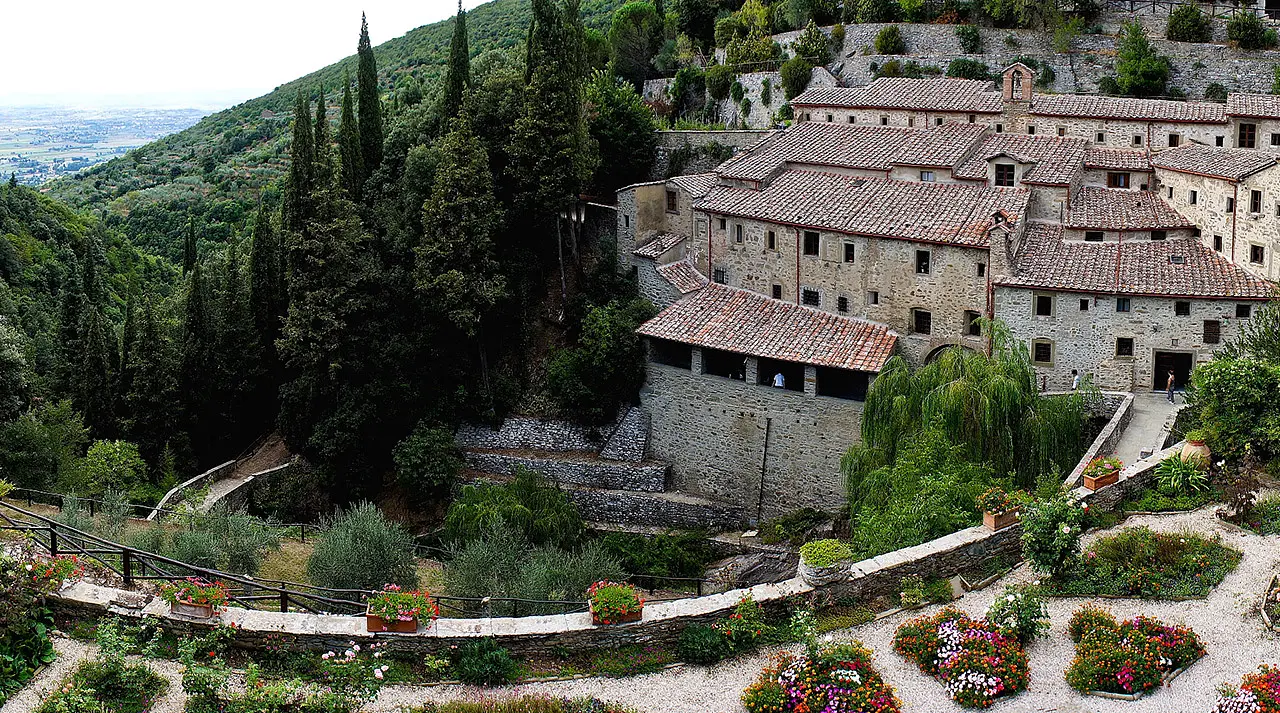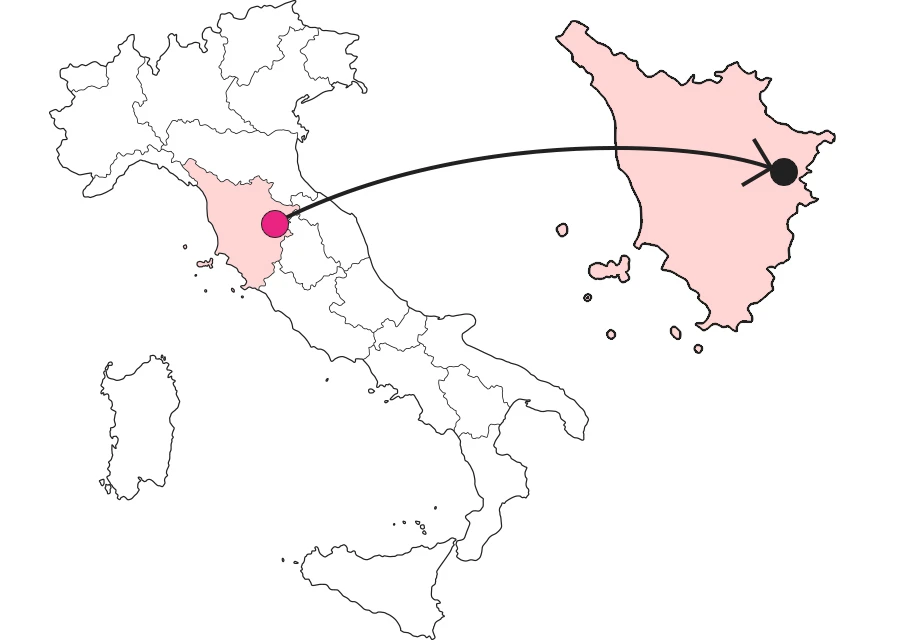SHARRYLAND


Hermitage Le Celle
Everything protrudes upward, and our gaze cannot help but turn toward the sky


Where is

What it is and where it is
Le Celle Hermitage is one of the first convents desired by St. Francis of Assisi. Today it is home to the Novitiate of Capuchin friars, who have been coming here since 1537 to begin a new life path of simplicity, prayer and sharing. Hidden at the foot of the Cortonese Mountain, between Mount Sant'Egidio and the Val di Chiana, it welcomes visitors with a magical opening in the rock. When you cross it, a sign announces, "Brother, Sister, the presence of St. Francis of Assisi has sanctified this place. May your presence be devout and collected. Dispose your soul to listen: you will perceive like Francis the presence of the Lord."
Why it is special
Those who come to the Cells of Cortona feel an energy that spans the centuries and reaches us. A series of small cells arranged in a fan shape embrace the visitor as he or she comes forward, and then a path leads to the Barberini Bridge, from which the Fosso dei Cappuccini, the stream that runs through the monastery, can be observed. The roar of the water, the wind, the trees, the flowers and the fruits of the earth are here in perfect harmony with the constructions of man. This is a place of peace, where one listens to oneself, to others, to the world. In the silence you can feel hands that beyond time hold each other, voices that beyond space speak to each other.
Not to be missed
The convent's primal core is the ancient Oratory, which once housed the friars' dormitories. Inside we find the cell where St. Francis of Assisi stayed during his visits: a tiny room, completely bare, where the bed is made by joining the rock with a wooden board. Entering this space creates a shock: one is struck by the absolute poverty and humility that made up the life of the saint, who in the harshest conditions found serenity, joy and love for others.
A bit of history
St. Francis first arrived in 1211 in Cortona, where he began preaching the gospel. Here he met Guido Vagnottelli (later Blessed Guido) a wealthy young man who listened to the saint and decided to give him a place where there were small dwellings, perched and already distributed in tiers. It is precisely from these that the first small cells of the hermitage, particularly beloved by St. Francis because it was immersed in nature and silence, are made. When Francis died, the Hermitage was enlarged only to fall into disuse shortly thereafter. It was recovered in 1537 and donated to the Capuchins, who still guard it.
Curiosity
Tradition has it that in this place St. Francis wrote the last verses of the Canticle of the Creatures, dedicated to forgiveness and death. The composition of the text dates back to 1224, when the saint, on the mountain of La Verna, after days of fasting and prayer, received the stigmata, a guarantee of eternal beatitude. St. Francis returns for the last time to Le Celle in 1226, shortly before his death, and it is here he writes that death is "sister" because it no longer represents pain, the end of something, but the highest form of love: it is the reunion of God with all his creatures.
Enter the Map of Italy's Undiscovered Wonders and find treasures where you least expect it... Inspire, Recommend, Share...
Contact
The Map thanks:
Enter the Map of Italy's Undiscovered Wonders and find treasures where you least expect it... Inspire, Recommend, Share...
Where is

Contact

